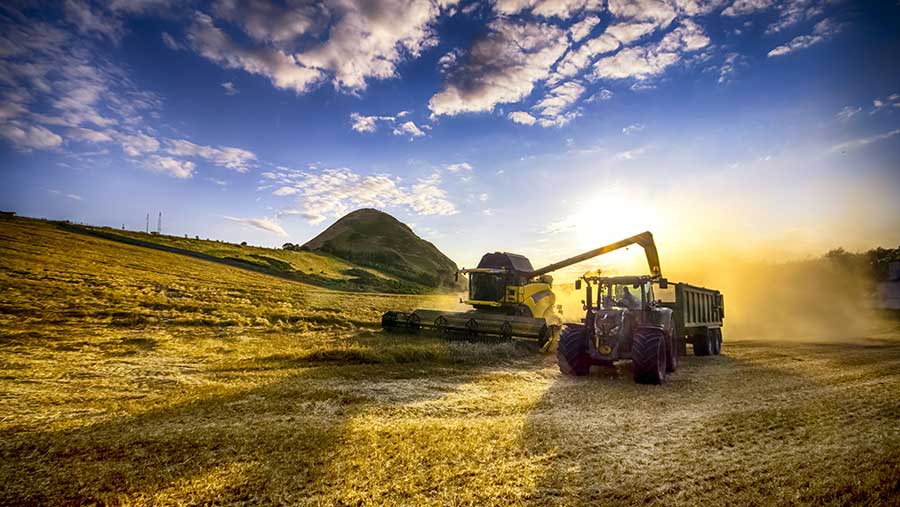Lochhead bangs drum for EU as farm income figures fall
 ©WestEnd61/Rex Shutterstock
©WestEnd61/Rex Shutterstock A sharp drop in Scotland’s total income from farming (Tiff) figures for 2015 show it is “crucial” to stay in the EU, rural affairs secretary Richard Lochhead has claimed.
Official figures covering the 2013-15 period show income fell by 9% in 2014 compared with the previous year, and initial estimates for 2015 suggest a further drop of 15%.
This is only the second time since the 1990s that Tiff has fallen in consecutive years.
See also: Farm income figures fall across most sectors – new figures
Agriculture was worth £777m to the Scottish economy in 2014, down from £837m in 2013.
2015 Tiff figures
The average milk price fell 23% in 2015, resulting in a drop of 21% in the overall value of the sector, to £364m.
The poultry industry has lost half its value in two years from £118m in 2014 to £62m in 2015.
Cereals fell 13% in both years, with barley now worth an estimated £198m and wheat £119m.
Potatoes saw two drops – 24% (2014) and 12% (2015) – now down at an estimated £167m.
The beef industry saw a small decline in 2014, followed by a partial recovery in 2015. Output from slaughter or sales of cattle amounted to an estimated £732m in 2015.
Sheep farmers saw a 10% increase in 2014 followed by an estimated 4% fall in 2015 to £202m.
Total costs were estimated to have fallen slightly in both years, with feed, fertiliser and fuel all down, but labour costs up about 5% in 2015.
Although not all the data is yet in, Tiff for 2015 is predicted to have fallen back to about £667m, which, once inflation is taken into account, is the second lowest in the past decade.
Subsidies accounted for 14% of gross income and 74% of Tiff in 2015.
Mr Lochhead said the figures highlighted the importance of EU funding to Scottish agriculture.
“The Common Agricultural Policy is expected to inject more than €4.5bn [£3.4bn] into the Scottish economy over this CAP period, and Scottish dairy producers benefited from EU emergency aid last year.
“Europe is also our number-one destination for international food and drink exports, with more than two-thirds of the food produced here going to the Continent.
“Continued EU membership is therefore absolutely crucial for the future of Scottish farming.”
NFU Scotland said direct support played an invaluable, but complex, part in farm incomes.
But farmers needed answers to many questions to help them make an informed vote on EU membership.
This included details of what the trading arrangements with the rest of Europe would be if we were to leave the EU.
Jonnie Hall, NFU Scotland’s director of policy, said overall the statistics should have alarm bells ringing.
“The bottom line for the industry as a whole, rather than individual sectors, is that over two years total costs have decreased, but total output has decreased further, and at a faster rate.
“Worryingly, that fall in Scottish farming’s total output is as much to do with decreased production as it is to do with decreased prices.
“These figures back up our argument that farmers need funds available through all support schemes as soon as possible, and justifies the pressure we have been putting on the Scottish government in recent months to deliver payments on time to cash-poor businesses.”
